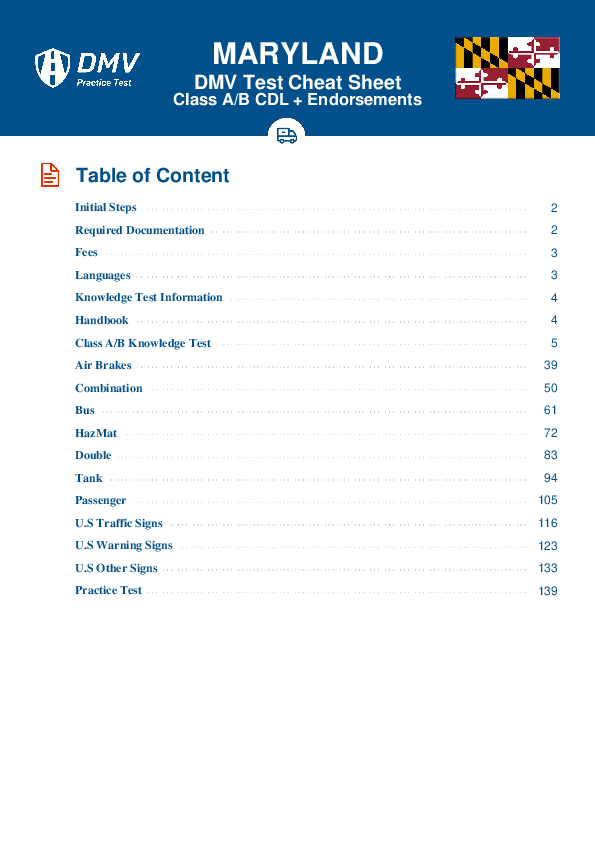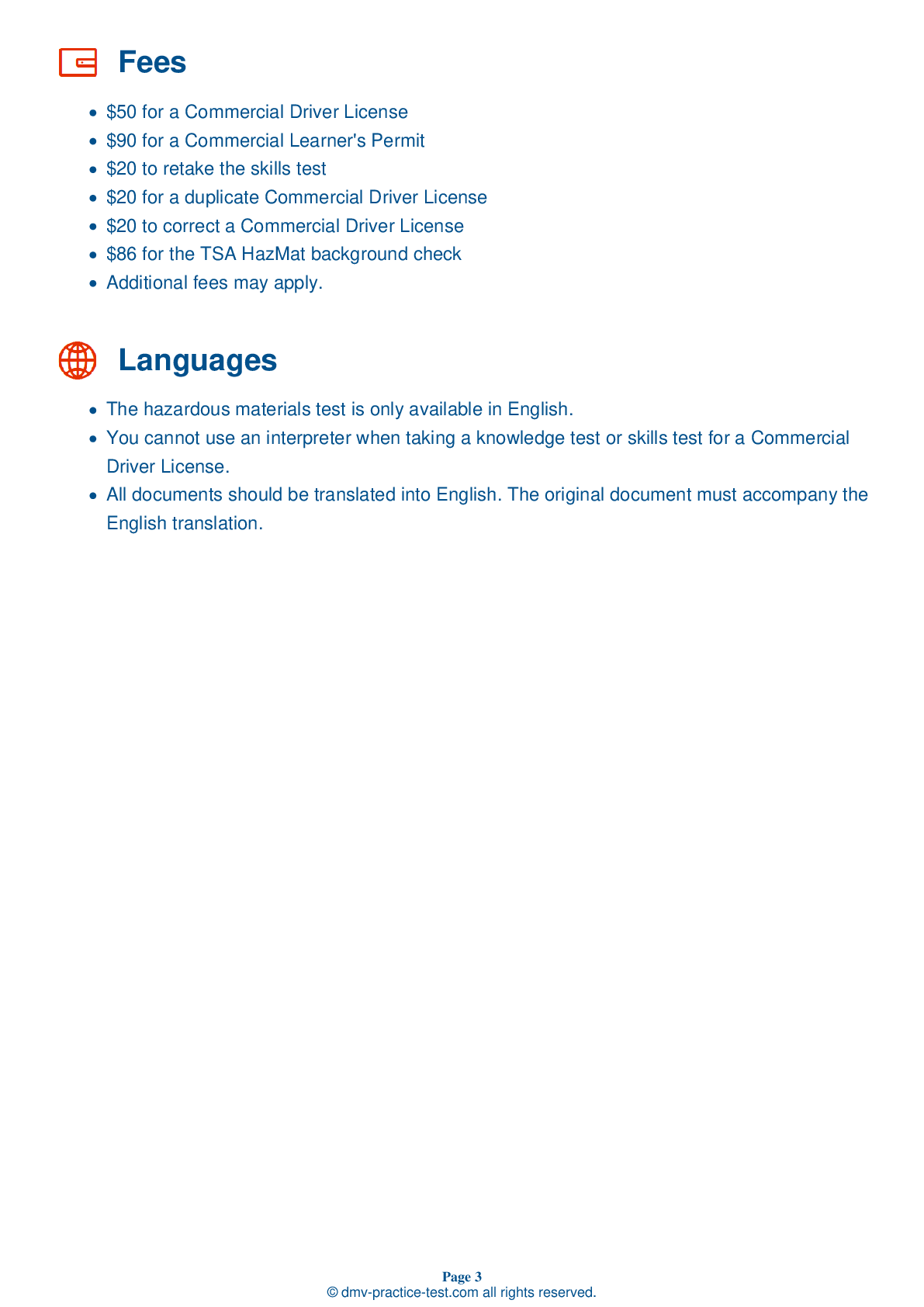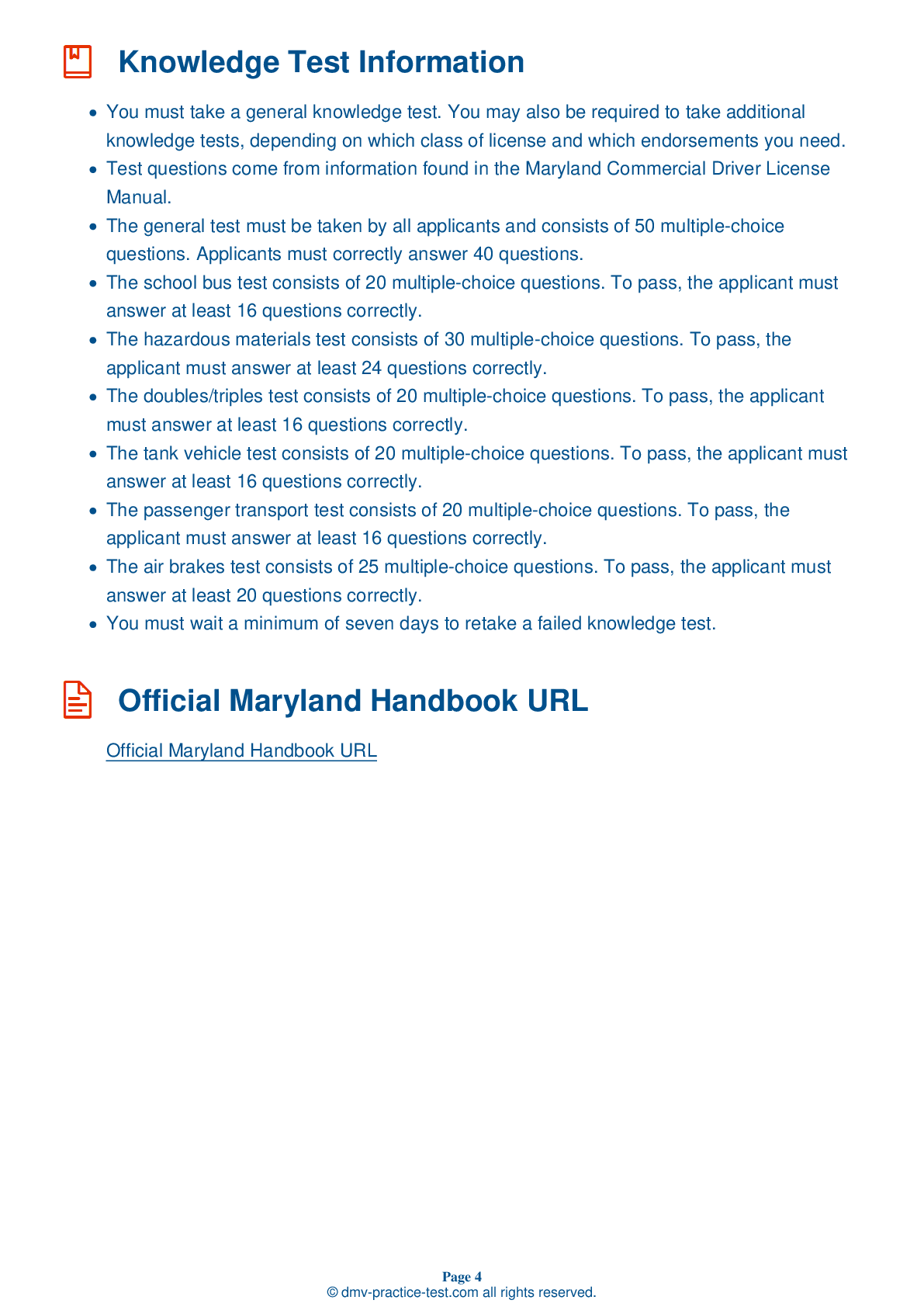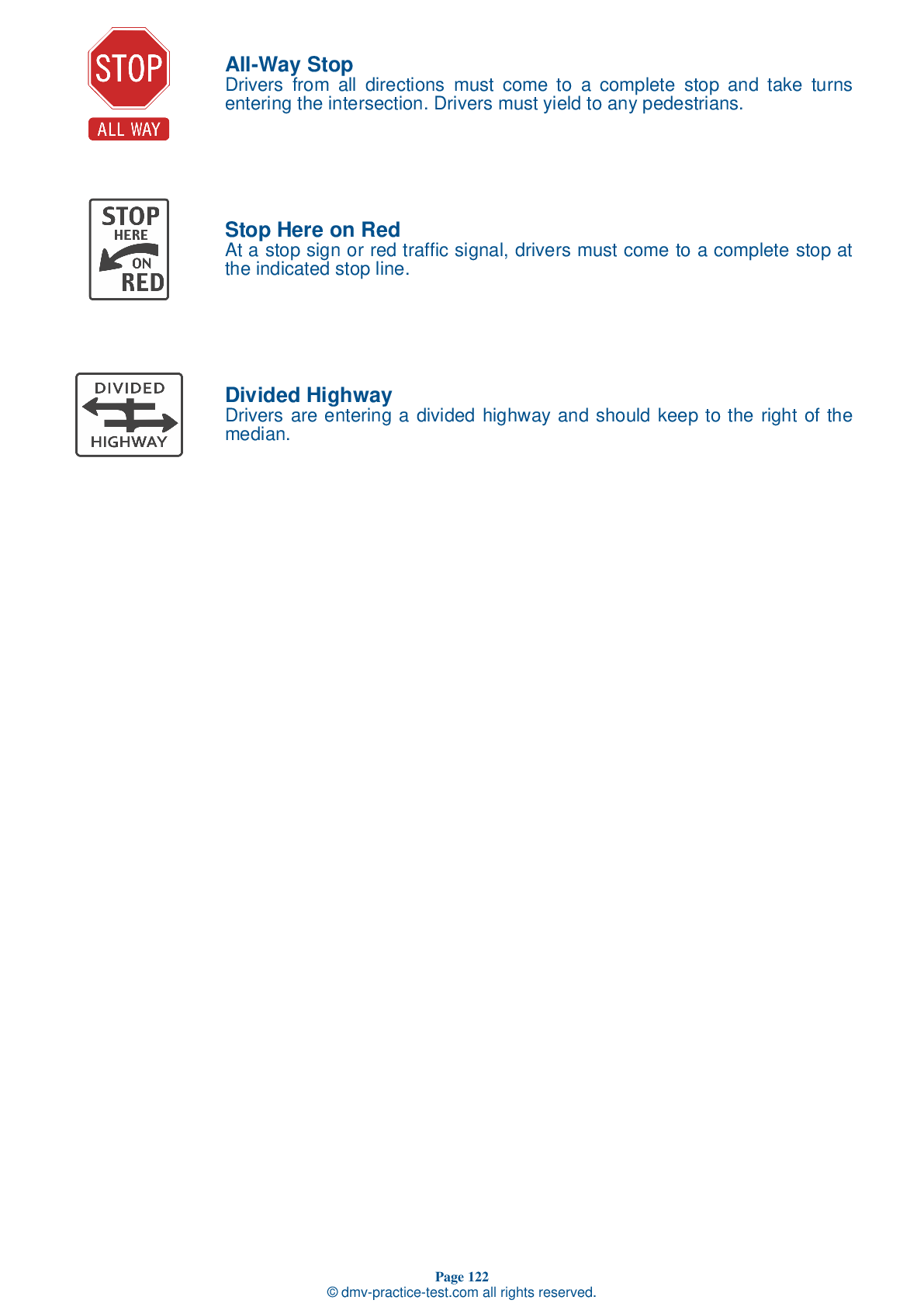Double Triple Test | Maryland 2026 #2
Train for FREE with our Maryland CDL double triple practice test online. The official exam test consists of several obligatory parts, with all of them checking your knowledge of different blocks of road rules. If you need to obtain a MD CDL double triple license in 2026, practice as much as possible. Free sample tests published on our website will help you check and improve your knowledge and boost your grades. Please bear in mind that DMV requirements may vary from state to state.
1 . To prevent a vehicle from rolling backward when beginning to move forward from a stopped position, you should:
To prevent a vehicle with manual transmission from rolling backward when you begin to move forward from a stopped position, you can partly engage the clutch before removing your foot from the brake pedal.
2 . To prevent becoming an aggressive driver you should:
To avoid engaging in aggressive driving behavior, it is helpful to give other drivers the benefit of the doubt. Assume that they have valid reasons for what they are doing and don't take their actions personally.
3 . When backing a trailer, you must turn the steering wheel:
When backing a vehicle with a trailer, you must turn the steering wheel in the direction opposite of where you want to go. Once your trailer starts to turn, you should turn the steering wheel the other way to follow the trailer.
4 . In a vehicle equipped with an automatic tractor protection valve, the valve will pop out when air pressure drops to a level between:
In vehicles equipped with an automatic tractor protection valve, the valve will pop out if air pressure drops to a level between 20 and 45 psi. When the valve pops out, the protection valve will close, stopping the flow of air.
5 . If manufactured after 1998, converter dollies on doubles and triples:
Converter dollies built on or after March 1, 1998 are required to be equipped with anti-lock brakes.
6 . Move over laws require:
If an emergency vehicle using its flashing lights is stopped on the side of a multilane road, move over laws require drivers to vacate the lane directly next to the vehicle, if possible. If a driver cannot move over safely, they must slow down and proceed with caution.
7 . When inspecting your vehicle, which of the following should not cause concern?
Problems to check for when inspecting a vehicle's exhaust system include loose, broken, or missing exhaust pipes, mufflers, tailpipes, or vertical stacks; loose, broken, or missing mounting brackets, clamps, bolts, or nuts; exhaust system parts rubbing against fuel system parts, tires, or other moving parts of the vehicle; and exhaust system parts that are leaking.
See the exact questions that will be on the 2026 Maryland DMV exam.
99.2% of people who use the cheat sheet pass the FIRST TIME
Lillian MCcranie explains how our CDL study guide was helpful in passing the exam and recommends it to everyone.
Cameron tells us how he purchased the CDL exam, and found it to be a useful tool which helped him pass the exam and find a job.



